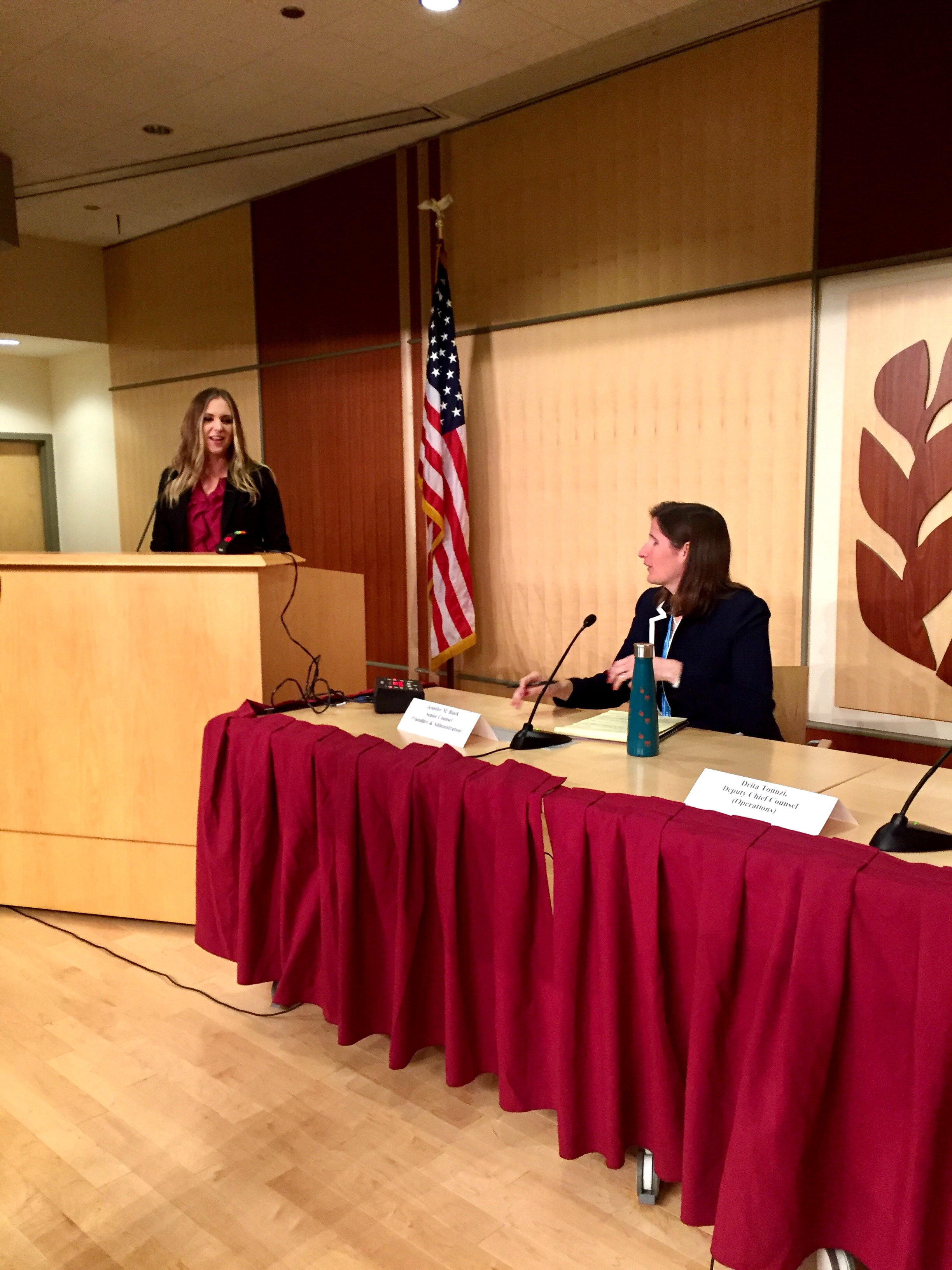AICPA Calls for More Clarity and Revisions to Proposed Regulations on Centralized Partnership Audit Regime at IRS Hearing
October 26, 2017

Sarah Allen-Anthony, CPA, a member of the American Institute of CPAs’ (AICPA) Partnership Tax Technical Resource Panel, testified at an Internal Revenue Service (IRS) hearing on September 18 about regulations that were proposed earlier this year to implement the Centralized Partnership Audit Regime.
Allen-Anthony, a tax senior manager at Crowe Horwath LLP, emphasized that the Centralized Partnership Audit Regime (Regime) significantly changes the way adjustments made by the IRS during an examination are accounted for by a partnership. “A bedrock principle of partnership taxation is that all items of income and expense flow through to the partnership’s owners, including adjustments related to IRS audits,” Allen-Anthony stated. “The Regime replaces this long-standing method with one where the default mechanism requires the partnership to pay any additional tax due, resulting in significant administrative and accounting complexities.”
Allen-Anthony’s testimony focused on the AICPA’s recommendations and concerns about the “push-out” process for tiered partnership structures, the impact on partner capital accounts and basis, the process for designating the partnership representative and allowing an audited partnership access to the IRS Office of Appeals.
“We propose that the IRS establish procedures to allow for the push-out of audit adjustments through a tiered partnership structure,” Allen-Anthony testified. “In general we discourage establishing any limitations on tiers, dollar amounts, number of partners, or other attributes because those limitations may result in the partners paying inappropriate amounts of tax,” she said.
“One of the main areas of increased complexity involves the effect of audit adjustments on each partner’s capital account and partnership basis,” according to Allen-Anthony’s testimony. She presented the AICPA’s proposals designed to simplify that process while maintaining the core principles of partnership accounting.
Regarding the Regime’s proposed procedures for designating and replacing a partnership representative, Allen-Anthony said the AICPA opposes the proposed procedures for appointing a “designated individual” to act on behalf of an “entity partnership representative;” recommends allowing a partnership to revoke and replace their partnership representative at any time and that a partnership representative should have the ability to resign at any time; opposes the Regime’s provision that allows a resigning partnership representative to appoint their own successor, and recommends that the IRS clarify that all partnerships be required to appoint a partnership representative on their timely filed tax return in order to protect the interests of both the IRS and the partnership.
Allen-Anthony noted that the Regime does not include a reference to an audited partnership’s right to challenge various determinations under the Regime with the IRS Office of Appeals. She described the appeals process as a “vital option for taxpayers to resolve an issue without having to go Tax Court.” Allen-Anthony cited five specific situations under which partnerships should have the right to challenge actions or determinations by the IRS via the appeals process.
Jonathan Horn, CPA, CGMA, senior manager for AICPA tax policy and advocacy, reports that the AICPA submitted a broader comment letter about the Regime on August 14 and recommended a one-year delay in implementation of the Regime in a letter dated June 13. Horn, who serves as staff liaison on the partnership issue, said, “The AICPA will continue to work closely with the IRS, Congress and other stakeholders in developing the most effective and efficient ways to implement this new Regime.”
Watch the video of Allen-Anthony and Horn discussing the hearing.
